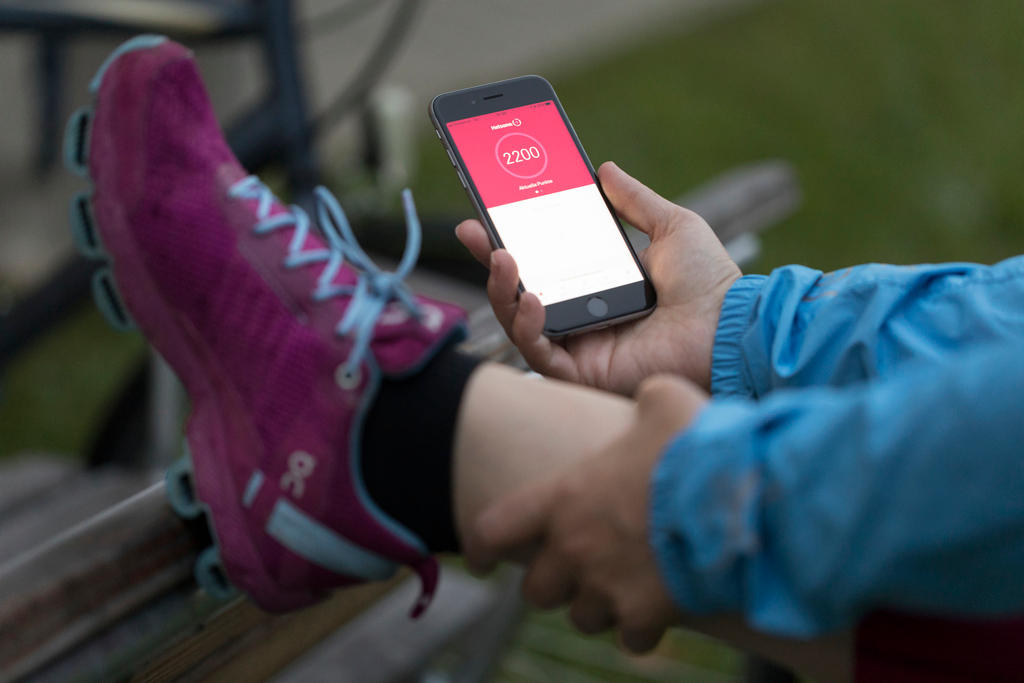
Study warns of risks of wearable health trackers

Watches and armbands that measure how many steps you take each day, how many calories you burn, how long and deep you sleep, or how fast your heart is beating could lead to discrimination, warns a study on measuring personal data.
People who are well-informed about their bodies can recognise diseases earlier and in general tend to lead healthy lives, admitted the Centre for Technology AssessmentExternal link (TA-Swiss) on Thursday. They also said that the mass of data collected from these devices and apps could form an important basis for research.
+ Why big data is good for your health
However, the harmful social effects of such technology should not be overlooked, they added.
Self-assessment focuses on personal responsibility and self-improvement: one’s body is seen as the result of personal effort rather than biological fate. But the idea that individuals are in control of their physical condition can lead to a lack of social solidarity and to potential discrimination, the authors warned.
For example, if a disability prevents someone from walking a certain number of steps, this person risks being disadvantaged socially and being excluded from beneficial terms by insurance companies – who are very interested in such health data.
In addition, many trackers are technically inadequate and can give wearers false information.
Data protection is another grey area, the researchers found. Foreign service providers, in particular, often fail to adhere to Swiss regulatory requirements. “If a product comes from Asia or the US, it’s difficult for users to enforce their rights,” they said.
Quality label
Given the many open questions, the researchers called for the introduction of a quality label for lifestyle and health trackers.
This would need to be tested by consumer and patient organisations for data quality, data protection, terms of contract and user friendliness, they said, adding that the results must then be published.
At the same time, further studies should be carried out to determine whether such health self-assessments can actually improve one’s health and even lower health costs.

More
What your job title could tell you about your health

In compliance with the JTI standards
More: SWI swissinfo.ch certified by the Journalism Trust Initiative




























You can find an overview of ongoing debates with our journalists here . Please join us!
If you want to start a conversation about a topic raised in this article or want to report factual errors, email us at english@swissinfo.ch.